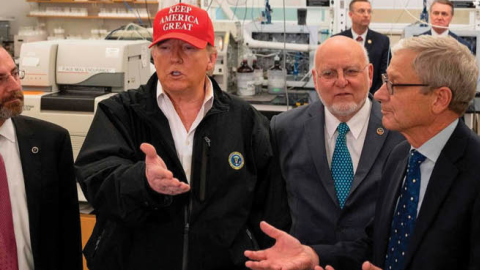The coronavirus pandemic is the greatest challenge Donald Trump has ever faced. As stock markets fall and patient numbers rise, the epidemic threatens the lives of some Americans and the prosperity of all—and it has already begun to disrupt the political methods that brought Mr. Trump to the White House.
As he has done in other crises, the president is stalling for time as he processes the nature of the threat and tests rhetorical and policy responses to it. But unlike human political adversaries, the coronavirus isn’t something he can bluff, threaten or placate. If the epidemic follows the course medical experts believe to be largely inevitable, both the disease and its economic consequences will be immune to Mr. Trump’s standard tactics. He can’t spin them away, divert public attention by creating another drama, or blame them on President Obama. In the near future the mass rallies that have been critical to Mr. Trump’s political success may be banned on public-health grounds. If he is especially unlucky, one of his rallies could be implicated in a major outbreak.
Many of the key points in Mr. Trump’s case for re-election are also at risk. A recession would deprive him of the argument that, whatever you think of his character, he puts money in your pocket. A pandemic also undercuts his contention that a “wrecking ball” presidency is needed to destroy a rotten establishment. That reasoning works better when it comes to university administrators overreaching on Title IX and ultraliberal journalists than with the medical establishment and public-health professionals. Voters tend to like stability in a crisis.
Read the full article in Wall Street Journal















